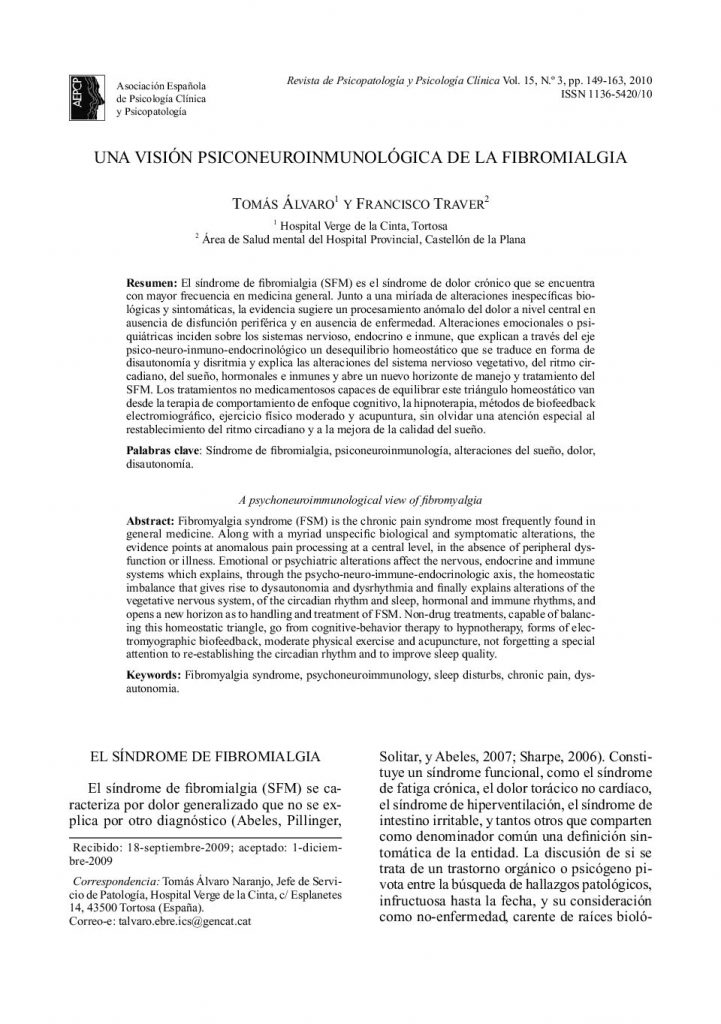Una revisión psiconeuroinmunológica de la fribromialgia.

- Una revisión psiconeuroinmunológica de la fribromialgia.
- Desarrollo de una versión de 30 items de la Revised Child Anxiety and Depression Scale.
- Valoración del estado de salud y psicopatología de los familiares en el trastorno del comportamiento alimentario: Diferencias entre cuidadores principales y secundarios.
- Evaluación de la memoria semántica: estudio transversal en personas sanas y en pacientes con enfermedad de Alzheimer.
- Aplicación de la terapia de interacción padres-hijos en un caso de trastorno negativista desafiante.
- Información sobre los criterios de calidad de la Revista de Psicopatología y Psicología Clínica.
Fibromyalgia (FSM) is the chronic pain syndrome most frequently found in general medicine. Along with a myriad unspecific biological and symptomatic alterations, the evidence points at anomalous pain processing at a central level, in the absence of peripheral dysfunction or illness. Emotional or psychiatric alterations affect the nervous, endocrine and immune systems which explains, with the help of the psycho-neuro-immune-endocrinologic axis, the homeostatic imbalance that gives rise to dysautonomia and dysrhythmia and finally explains alterations of the vegetative nervous system, of the circadian rhythm and sleep, hormonal and immune rhythms, and opens a new horizon as to handling and treatment of FSM. Non-drug treatments, capable of balancing this homeostatic triangle, go from cognitive-behavior therapy to hypnotherapy, forms of electromyographic biofeedback, moderate physical exercise and acupuncture, not forgetting a special attention to re-establishing the circadian rhythm and to improve sleep quality.
La fibromialgia es el síndrome (SFM) de dolor crónico que se encuentra con mayor frecuencia en medicina general. Junto a una miríada de alteraciones inespecíficas biológicas y sintomáticas, la evidencia sugiere un procesamiento anómalo del dolor a nivel central en ausencia de disfunción periférica y en ausencia de enfermedad. Alteraciones emocionales o psiquiátricas inciden sobre los sistemas nervioso, endocrino e inmune, que explican a través del eje psico-neuro-inmuno-endocrinológico un desequilibrio homeostático que se traduce en forma de disautonomía y disritmia y explica las alteraciones del sistema nervioso vegetativo, del ritmo circadiano, del sueño, hormonales e inmunes y abre un nuevo horizonte de manejo y tratamiento del SFM. Los tratamientos no medicamentosos capaces de equilibrar este triángulo homeostático van desde la terapia de comportamiento de enfoque cognitivo, la hipnoterapia, métodos de biofeedback electromiográfico, ejercicio físico moderado y acupuntura, sin olvidar una atención especial al restablecimiento del ritmo circadiano y a la mejora de la calidad del sueño.



